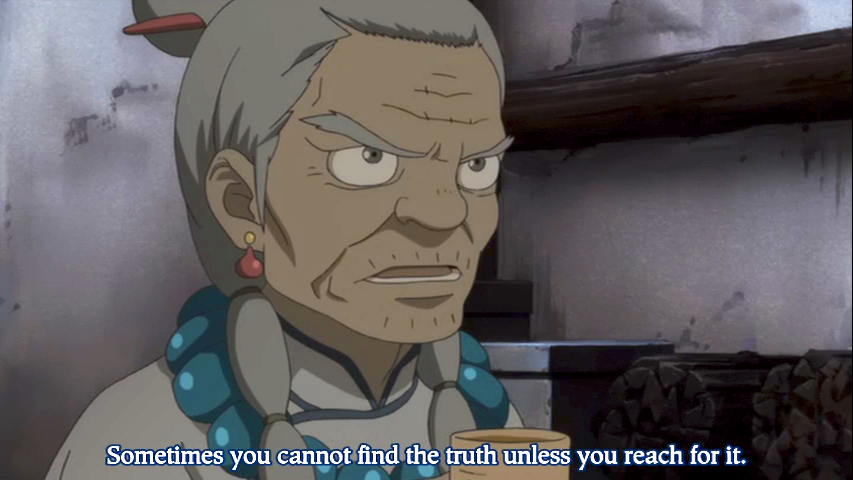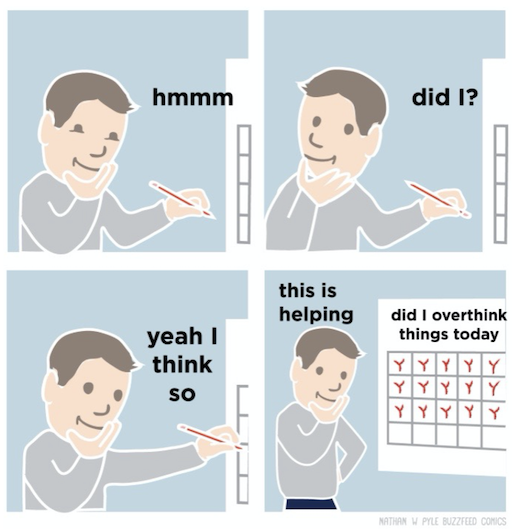Reason To Go On A Bike Tour: The AIs Are Coming
February 16, 2020 Filed under Inspiration, Tech
Remember those spam emails everyone used to get, with 20 different versions of the same message, slightly different because some of the words have been swapped around? “IMPROVE the SPAN of your TOTEM! Only SOME dollars, what a NICE value!” You may not see many of those emails nowadays, but the technology making them didn’t go away, it just got much better.
It used to be basic substitution: The human would provide the computer with a sentence, and the computer would swap out words for synonyms. The resulting sentence wasn’t meant to fool humans, it was meant to fool other computers to make it through spam filters. It was a war between computers and we got to see the ridiculous consequences of it. And now the technology is so good that it can be used to fool humans directly.
The idea is the same: The computer doesn’t come up with an original opinion, is takes a piece of writing and reconstructs it with fresh words, so it looks like someone else is saying the same thing, and there’s a consensus. You don’t even need a very powerful computer by today’s standards to do this.
Technically, you don’t even need a computer, because this is just a new spin on a very old thing: Propaganda. The Russian government still does propaganda the old fashioned way for example, by hiring its own underemployed citizens to write fake opinions on the internet. Why pay programmers thousands of dollars to write custom software when you can just hire poor people at the equivalent of two bucks an hour to write what you tell them?
Either way – whether the opinions are generated by hired hands or by computer code – advertisers do not need to spend their money trying to change the opinions of real people any more. They can just change the contents of networks and announce victory, relying on people to believe that the network and public opinion are the same. Peer pressure bridges the gap.
It’s way, way cheaper than actually trying to convince you directly. Pay a company like Facebook for metadata to identify your core buyers, or voters, or supporters, or disciples, or whatever, and then crunch it to figure out the best way to get a rise out of them. Pay Facebook again for your content to “randomly” appear to those people, endorsed by some friend-of-a-friend that they’ll never know well enough to question … And watch the needle move in your favor, or watch your enemies go down in flames.
“Gosh, this must be what’s on everyone’s mind! I’ve heard about it from two seemingly unrelated sources, what are the chances of that if it’s not huge? I better investigate…”
Your friends and family wouldn’t deliberately pass you fake information. (Well, unless they like practical jokes.) Generally, you can trust that when they swear something is true, they’ve at least verified it to their own minimum standard, right?
Consider the social media feed of any one of those people. How accurately does it represent what they believe? Huge chunks of their personality are missing. Plus there’s additional stuff, that they didn’t technically endorse, mixed into it. Links to videos and blog posts and other external content, attributed to them, or their friends, or their friends-of-friends. You barely have to scroll a page before you see something supposedly placed there by a person you barely know — or don’t know at all.
Do you rely on feeds like Facebook or Instagram for your news about the world? For your entertainment? Do you read comments beneath videos and blog posts, to get a sense of how a thing is being received? Do you cultivate a Twitter feed, narrowed down to things that interest you, and track the world from there? How about on Snapchat? Reddit? Tumblr? Nextdoor? How about on any website – of any size – claiming to present you with “articles”, curated by “people?”
Everything you see that was not researched and written by someone you know personally, is suspect. You could be looking at a deliberate distortion of facts, in pursuit of a goal, often a political one. No paranoid conspiracy theory is required to justify this idea: It is merely the confluence of money and modern networking hardware. You honestly do not have any way to verify that the person – or thing – that wrote the words you are reading is who or what they claim to be, unless you meet them in a physical space and ask. So you act on faith, almost all the time.

We don’t need to be engulfed in dystopian oligarchy, thank goodness. There are two escape hatches already in place:
The first one is traditional news reporting agencies. Slowly they are leaving the dungeon of paper media and finding decent electronic means to support themselves. Do your best to find an impartial source of news, supplied by real journalists, and subscribe to it. If you’re worried you won’t be able to tell who’s impartial (and good for you, for having that thought) consider my handy dandy list of three metrics you can apply:
Is this thing:
- Hilarious
- Inflammatory (making you afraid or angry at an enemy)
- Clearly wrong (begging for correction)
If it’s big on any of these three things, you’re probably looking at something that was designed to manipulate you, and perpetuate itself by stoking your desire to share it with others. (Easily offended is easily manipulated.) Find a source of information – even if it charges a modest fee – that doesn’t traffic in these three areas, and you’re already ahead of the pack. The service they deliver will be worth a few bucks a week.
You already pay that much to keep parasites off your dog. It’s worth at least that much to keep parasites out of your mind, right?
The second part is, people are learning to be skeptical of any online comment or editorial from anyone they haven’t met face-to-face at least once.
(Something written by a stranger and merely “liked” by someone you know is not enough; in fact it’s almost worthless. The government of Finland recently realized this skepticism was so important they began teaching it in their schools.)
In this new age, a comments board on a website that appears to be full of lively discussion may not necessarily be the product of living beings. It is possible to manufacture something just like it, in the guts of a computer, in less than a second, all the way down to the typos and the jokes, and even grow it dynamically as real people interact with it, and it’s all about as authentic as a hunter’s duck whistle. Knowing people personally is your only sure escape from this madness. So, when you do meet a new person and manage to get a conversation going, ask where they get their news. It’s a fine opportunity for you to gather a source. You’ll learn something however they answer.
And now we arrive at the way this ties into bike touring. (I bet you thought we’d never get there!)
More than any other method of travel, bicycling gives you a way to meet new people – curious and active people – face to face in new places, and gives you the time (and an excuse) to talk to them. It’s faster than a run, but way more accessible than a car. Less confined and more independent than a boat or a train or a plane. Even with just a short trip and a little bit of moxie you can have a hundred conversations, and learn about events near and far, from real people. And not just people concentrated in large cities either, but people everywhere.
A journey is always a perfect subject for a new conversation, and when you’re standing next to a bike loaded with gear, it’s obvious what you’re doing. You’re a curious sight, and you’ll invite questions. Even if you don’t, you have important reasons to practice connecting with new people: You need ground truth information. What’s the best place to eat, for a good price? What’s the best way across town? Do you know where I can find a clean public bathroom?
You don’t need to “pull over” and roll down a window. You just put your feet down and you’re there, ready to talk. You could turn to your smartphone for advice, and most of the time you probably will, but there will come a time sooner than you think when it will drift too far from ground truth.

When you finish your questions, you pedal the bike for another half-hour, and there you are with a fresh crowd. More practice.
A world-touring cyclist wrote on his blog that one of the key things he learned on his epic journey was to ask people for whatever he wanted, no matter how outlandish the request felt. He’d just been wrong so many times about how generous people could be that he stopped trying to be skeptical. Instead he learned that people would often provide food, shelter, hardware, or advice in exchange for a couple of hours telling stories about his time on the road.
That personal connection, and that first-hand view of the wider world, is a universal human currency. The more you exchange it the more authentic your life becomes — and the weaker the computer-manipulated phantoms of the internet become in turn. They automatically become less real and less relevant as you refresh your humanity. That stress you feel when the online world seems to be in chaos, full of hate and fear — it fades away. Social media is not the truth of the world. It’s something happening in a series of tiny little containers. Good thing you’re not stuck in there, huh?

Despite what the science fiction of the 90’s promised us, the future of humanity is not spinal cords drifting in tanks full of holograms. That would be the future of something less than humanity, without breath or heat or texture, without the sense of place or limited life, without the danger. Humanity is anchored to this “middle world,” where all truly real phenomena reside.
Outside this middle world, perhaps there is another universe, or heaven, or nothing. Inside the middle world, there is virtual reality, social media, and altered states of mind. No matter how amazing and intricate those other things become, the middle world will always anchor us. It’s not a simulation (despite what you may have heard from some wacky industrialist) and it’s not merely a container for simulations. We all live our one real life within it, until we cease being human completely.
Refresh your humanity, not your browser.
And by the way, it’s not my intention to shame anyone who cannot get out there and ride because of a physical limitation or because they are too buried in work or in caring for others. But insofar as people have a choice, I hope they choose to spend their free time interacting with the outside world and other people directly, rather than punching smartphone buttons and arguing with digital ghosts. The online rabbit hole doesn’t lead anywhere, it just keeps going.
The road outside, though — that leads everywhere good.


 For the next week, the limit of my mental capacity was playing video games and petting the cat. Forget working — even answering emails. I couldn’t read more than a few lines without forgetting where I was. Part of my brain was floating overhead in a balloon, doing its own thing, and there was no way it could participate in waking life. To keep the few appointments I had – one with a contractor, one with a mechanic – I clutched my phone like a spool of thread in a labyrinth, and set a dozen alarms.
For the next week, the limit of my mental capacity was playing video games and petting the cat. Forget working — even answering emails. I couldn’t read more than a few lines without forgetting where I was. Part of my brain was floating overhead in a balloon, doing its own thing, and there was no way it could participate in waking life. To keep the few appointments I had – one with a contractor, one with a mechanic – I clutched my phone like a spool of thread in a labyrinth, and set a dozen alarms.